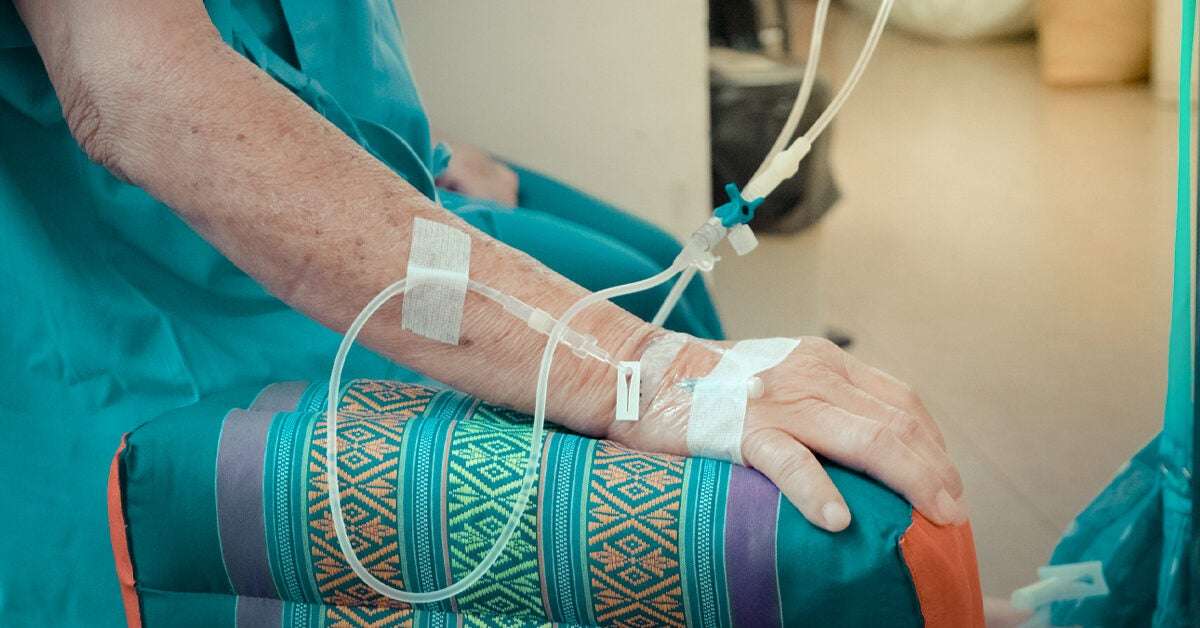Outcome 1: Professional counselor identity development integrating multicultural awareness, culturally competent counseling, and social justice advocacy interventions
Outcome 2: Capacity for empathic engagement, therapeutic alliance, and critical self-reflection as a counselor including the recognition of personal worldview and biases to enhance working with diverse groups in school and community settings
Outcome 3: Knowledge of cognitive, social, and emotional development across the lifespan including ecological, contextual, multicultural, and social justice foundations
Outcome 4: Understanding of a variety of counseling theories, prevention, intervention, consultation, and social justice advocacy strategies
Outcome 5: Knowledge of individual psychopathology, mental health assessment and diagnosis, as defined by classification systems such as Diagnostic Statistical Manual (DSM) and the International Classification of Disease (ICD) and their relationship to treatment, prevention and knowledge of cultural biases associated with these systems
Outcome 6: Ability to conduct an intake interview, use biopsychosocial case conceptualization for treatment planning, and conceptualize and deliver a case presentation in both written and oral form
Outcome 7: Knowledge regarding the use, limitations and interpretation of assessment tools with an awareness of the cultural bias in assessment protocols and use of assessment/evaluation instruments and techniques that foster social justice among diverse client populations
Outcome 8: Skills for training, consulting, and collaborating with families, school personnel, and healthcare providers for education, systems change, and social justice advocacy
Outcome 9: Understanding of ethical and legal professional standards of care grounded in federal and state laws, public policy processes, and ethical standards of ACA, AMHCA and ASCA
Outcome 10: Knowledge of principles and practices of career counseling including the study of vocational/career development theories and decision making models; career assessment instruments and techniques, and the application of social justice theories to people’s vocational/career development
Outcome 11: Understanding of how to critically evaluate and interpret traditional and social justice oriented research and apply relevant research in counseling practice with the knowledge of cultural biases associated with research practice
Outcome 12: Knowledge of group theory, effective group interventions, principles of group dynamics, group processes, and group leadership, and the application of group work theory and practice to organizational dynamics and social justice advocacy in difficult settings
Outcome 13: Neuroscience, physical and biological foundations of human development, behavior and wellness; including the use of neuro-scientific research findings for culturally competent counseling practices and social justice advocacy interventions
Outcome 14: Completion of supervised field placement experiences that focus on the promotion of mental health, human development, wellness, cultural competency, and social justice advocacy, under the clinical supervision of appropriately credentialed professionals
Holistic Psychology
Students will learn and experience a vast resource of body, emotional, and psychological disciplines through independent study, practicum, and guided self-learning. The program teaches how to connect to innate “inner knowing” through use of the right brain. It is the goal of this program for the graduate to attain a higher human evolution and become a reflection of that which they offer in service to others.
Holistic Psychology is the study and practice of how to return to our natural wholeness. This field is the synthesis of ancient knowledge and methods with modern technological advances. The method is based on experiential learning and personal clearing. The ancients knew this as “healer, heal thyself.”
A key criteria for earning credits is for students to demonstrate how learning this subject matter impacts their lives personally and professionally. Integration of course material is of paramount importance at IUPS.
Many students earn course credits by having their mentor assign books to read on the course topic, and writing papers or completing projects that demonstrate their understanding of the assigned material. Credits can also be obtained by attending conferences, workshops, retreats, or online courses from established academic institutions. Students may request and submit for IUPS approval (through their mentors), permission to earn credits through external programs. Students also have the opportunity to assist in designing their own electives, allowing for education customization.
Course credits toward your degree may be earned in the following ways:
HPY 609 5 Multi-Cultural Counseling HPY 610 5 Childhood Development Studies HPY 620 3 Somatic Methods for Discharging Subconscious Belief Patterns HPY 630 5 Skills and Strategies in Therapeutic Feedback HPY 640 5 Understanding and Therapeutic Application of the Right Brain HPY 651 4 Skills and Strategies for Inner Child Therapeutic Processes HPY 655 5 Exploring Domains of Consciousness HPY 656 5 Overview of Energetic Healing Methods
HPY 609 3 Multi-Cultural Counseling HPY 610 3 Childhood Development Studies HPY 620 3 Somatic Methods for Discharging Subconscious Belief Patterns HPY 630 4 Skills and Strategies in Therapeutic Feedback HPY 640 3 Understanding and Therapeutic Application of the Right Brain HPY 651 3 Skills and Strategies for Inner Child Therapeutic Processes HPY 655 5 Exploring Domains of Consciousness HPY 656 3 Overview of Energetic Healing Methods
HPY 609 2 Multi-Cultural Counseling HPY 610 2 Childhood Development Studies HPY 620 2 Somatic Methods for Releasing Subconscious Belief Patterns HPY 640 2 Principles and Application of the Right Brain HPY 655 3 Exploring Domains of Consciousness HPY 656 3 Overview of Energetic Healing Methods HPY 800 10 Master’s Thesis Project
Course# Credits Electives HPY 660 1-5 Neuro Linguistic Programming HPY 661 1-5 Chinese Five Elements HPY 662 1-5 Gestalt Therapy HPY 663 1-5 Bioenergetic Therapy HPY 664 1-5 Tai Chi Push Hands HPY 665 1-5 Affect of Eye Movement in Therapy HPY 667 1-5 Introduction to Bach Flower Essences HPY 668 1-5 Introduction to Aromatherapy HPY 669 1-5 Introduction to Yoga HPY 670 1-5 Introduction to Movement Awareness Methodology HPY 671 1-5 Introduction to Mantra and Chanting HPY 672 1-5 Introduction to Breathwork for Emotional Clearing HPY 673 2-5 Matrix Energetics HPY 674 1-5 Prayer, Gratitude and Forgiveness
Below are examples of electives that one may consider taking as part of a degree program in Holistic Psychology. Students, in concert with their mentors, shall determine which electives are most relevant to their educational aspirations.
Holistic Psychology Course Descriptions
REQUIRED CORE COURSES
HPY600 Theories and Principles of Holistic Psychology
This course examines the methodologies, theories, and research that support the holistic vision in psychology. Emphasis is placed upon the interaction of the physical, psychological and spiritual. Students will be encouraged to evaluate their own beliefs around identity and self-actualization processes.
HPY 605 Studies and Application of Centeredness in Eastern Traditions
This course explores the theories and concept of internal Centeredness. Students will study and discuss concepts from Taoism and the Tao Te Ching and will practice the Asian exercises to classically train internal centeredness. The course continues the exploration into the state of being known as centeredness, or being centered. Students will go deeper into the practices of connecting to center and releasing physiological and psychological distractions and impediments to centeredness. This course will also particularly focus on the skills and strategies of regaining centeredness after “losing” centeredness. Students will have the opportunity to deepen their connection to their internal energy system. The focus will be on Asian methods such as Tai Chi and Chi Kung.
HPY 609 Multi-Cultural Counseling
This course acquaints students with the importance of taking into account and respecting the individual client’s cultural experience. Topics covered include the psychological implications of being a member of a minority group, questions about the universality of the human experience, and implications of a multi-cultural society, and the phases of acculturation clients may be experiencing.
HPY 610 Childhood Development Studies
This course focuses on the works of Pia Mellody and the five major principles of functional childhood development. Students will both study and discuss these principles along with completing the corresponding workbook on the five principles.
HPY 620 Somatic Methods for Discharging Subconscious Belief Patterns
This course explores the theory and practice of somatic release method for clearing physiological trauma associated with dysfunctional childhood learning. It also delves into the theory and practice of additional modalities to release childhood beliefs from the emotional and physical body.
HPY 630 Skills and Strategies in Therapeutic Feedback
In this course, students both develop skills to be used in recording therapeutic feedback from questionnaire material, and gain insight into the concepts behind these skills and strategies. Students focus on refining the skills explored in the first section, with students engaging each other in practice exchanges as well as facilitator feedback.
HPY 640 Understanding and Therapeutic Application of the Right Brain
This study and practicum course will explore the theories supporting the nature and function of the right, and students will practice utilizing the right brain in therapeutic methodologies.
HPY 651 Skills and Strategies for Inner Child Therapeutic Processes
This course explores therapeutic methods for the integration and connection of the adult and inner child personifications.
HPY 655 Exploring Domains of Consciousness
This course explores ancient traditions and new findings of scientific research in the area of consciousness studies.
HPY 656 Overview of Energetic Healing Methods
This course will focus on the upcoming field of energetic healing, its theories and methods. Students will receive an introduction to the SpectraVision Bio Scanning technology and principles of homeopathy.
HPY 657 Understanding the Role of the Mother and Father
This course will explore the understanding of the female and male principles, also known as anima/yin and animus/yang. The role of the mother and father in core childhood development will also be considered.
TPY 520 Theories and Practice of Meditation
Experiential learning defines this course as students are encouraged to integrate theories of meditation into the practice of meditation. Methods of relaxation and breathing techniques are taught, as well as the different approaches offered by various schools of thought pertaining to meditation. The student is expected to develop his/her own ability to meditate, based on an organized system of practice. The focus of this course is to transform experiential learning into experiential knowledge. The student’s mentor provides ongoing supervision and direction during this process.
TPY 601 Counseling Theories and Strategies
Traditional counseling theories are examined for their contributions to Transpersonal Psychology, and strategies are developed that incorporate relevant techniques into transpersonal perspectives. Students are encouraged to enter dimensions of consciousness that allow counseling theories to guide the strategies and skills required for effective transpersonal counseling. The development of skills that emerge from the incorporation of traditional knowledge with transpersonal pursuits are nurtured as a focus for this course.
TPY 670 Legal and Ethical Issues
This course outlines the sensitive areas of legal and ethical concern, such as the Privacy Act, confidentiality, informed consent, advertising, and conflict of interest. Guidelines are provided for the practical application of ethical behavior. The student is encouraged to study the laws of the state in which he/she practices and subsequent ethical standards.
SSP 504 Somatic Centered Therapies
HPY 800 Dissertation Research Project
A doctorate level dissertation is required and the proposal must be submitted to the mentor and department chair. Upon approval, students will work with their mentors to gain direction for research, format, and editing. This project will be a culmination of the student’s knowledge, making a significant contribution to the field of Expressive Arts Therapy.
ELECTIVE COURSES
Elective courses may be recommended by the university to ensure the student receives a well-rounded education and students are encouraged to take electives that focus on their core areas of educational interest. Alternative electives to the courses below may be designed by students and submitted to their mentor and the university for approval, truly giving students the opportunity to customize their education. In addition, with prior university approval, students can receive course credits for certain relevant workshops and conferences attended.
HPY 660 Neuro Linguistic Programming
This course is based on the research project to determine common characteristics and modalities of great achievers. Students will learn about sensorial preferences such as auditory, visual, or kinesthetic dominant behavioral traits. The course will also describe the understanding of how linguistics affects behavior strategies and patterns.
HPY 661 Chinese Five Elements
This course will describe the ideological foundation of Chinese Acupuncture called the Five Elements. Students will learn about the Elements of Fire, Earth, Metal, Water and Wood and how they are reflected in all living things. They will also learn the holistic correspondences of these Elements in human life.
HPY 662 Gestalt Therapy
This course focuses on the study of Fritz Perl’s work developed in the 40’s-50’s. Students will learn the Gestalt understanding about perception, gestalt formation and the tendency of organisms to complete the incomplete gestalt, to form “wholes” in experience.
HPY 663 Bioenergetic Therapy
Founded by Alexander Lowen, M.D., bioenergetics is a further development of the psychoanalytic work of Wilhelm Reich. Bioenergetics combines work with the body and work with the mind to create an in-depth understanding of who the person is, and what s/he needs in order to be fully alive and vibrant.
HPY 664 Tai Chi Push Hands
Pushing Hands is a simplified form of sparring popular with students of Tai Chi. Lacking the punches and kicks common in the practice fighting of many external martial arts, Pushing Hands is a gentle sport of control where success is achieved by upsetting the balance of one’s opponent.
HPY 665 Effect of Eye Movement in Therapy
This course is an overview of different theories and methods associated with use of the eyes for therapeutic processes. The course explores RET (Rapid Eye Technology), EMDR (Eye Movement Desensitization and Reprocessing), Tibetan eye work, and Bates vision correction work.
HPY 667 Introduction to Bach Flower Essences
Overview of the subtle liquid extracts known as flower essences and the effect the different essences have on our emotional and spiritual selves. This body of knowledge was most clearly developed in the 30’s by Dr. Edward Bach.
HPY 668 Introduction to Aromatherapy
Overview of the principles and applications of the oils of botanical plants. Students will study the therapeutic as well as the fragrance indications of the plants.
HPY 669 Introduction to Yoga
This course will review yoga as a spiritual practice. Included will be study of the eight-fold limbs of yoga and the Yoga Sutras of Patanjali.
HPY 670 Introduction to Movement Awareness Methodology
This course will overview the works of Feldenkrais, Alexander, Trager and others. Students will experience and learn the structural and psychological benefits of conscious movement work.
HPY 671 Introduction to Mantra and Chanting
This course studies the science and application of mantra and chanting from the different spiritual traditions. Students will practice and observe the affect of these ancient pure sounds.
HPY 672 Introduction to Breathwork for Emotional Clearing
This course will review the use of the breath to purge emotional trauma and physical trauma from the body. The course will include introduction to yogic pranayama and Rebirth breathing.
HPY 673 Matrix Energetics
Matrix Energetics is a complete system of healing, self-care and transformation. It is a transferable and teachable phenomenon, powered by intent, which has a physical and observable effect every time. Complete beginners as well as seasoned health care practitioners are able to perform and utilize this work to effect change with no waiting and no running of energy. Matrix Energetics is based on the laws and expression of subtle energy physics and the concepts and laws of quantum physics, superstring theory and Sheldrake’s Morphic Resonance. Advanced ancient principles reviewed, as well as quantum-based consciousness in transforming lives, healing, and well-being. Students also learn how to streamline the work and help the practitioner make choices on where and how to use this work quickly.
HPY 674 Prayer, Gratitude and Forgiveness
This course focuses on utilizing prayer with a focus on gratitude and forgiveness to bring one’s life into balance, and healing pain and patterning that has been passed down for thousands of years.




